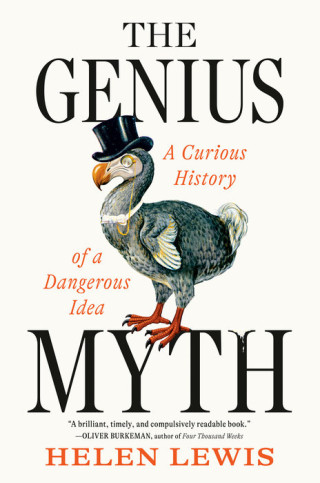For the genius-hunters, one encouraging source for exceptional talent was inheritance. At the time Brown was writing about Morphy and Colburn, academics throughout the Western world were wrestling with the theory of evolution by natural selection, proposed by Charles Darwin only six years earlier. The study of what would later be called genetics promised new methods of understanding genius, that quicksilver quality that seemed so resistant to explanation.
The first edition of Hereditary Genius, by Darwin’s half-cousin Francis Galton, was published in America in 1870. Galton’s work aimed to classify all men into lettered bands, depending on their mental faculties and lifetime achievements. The Atlantic reviewed Hereditary Genius that year, noting that the difference between the men in the upper part of Galton’s highest band and those in his lowest band “represents the difference between Shakespeare and the most degraded idiot mentioned in medical literature.” This was a coldly rational view of genius—more scientific in appearance, but also less humane.
Galton went on to coin the term eugenics. His unpublished utopian novel, The Eugenic College of Kantsaywhere, imagined a world where people were allowed to marry only after extensive tests of their fitness to reproduce, and where those who failed were shipped off to labor colonies. Thanks to the popularity of eugenics at the time, what started as an attempt to identify geniuses eventually led the U.S. Supreme Court to justify the forced sterilization of the “feeble minded” in Buck v. Bell in 1927. Thousands of Americans were subsequently denied the right to have children—an idea that also took hold in Nazi Germany, where an estimated 400,000 people were sterilized under the Hitler regime in the name of “racial hygiene.”
From the start, Galton’s ideas about genius were presented in explicitly racial terms: He believed that Europeans were intellectually superior to Africans, and that ancient Athenians were superior to both. The Atlantic, a proudly abolitionist magazine, ran an article that contested this bigotry. In 1893, Havelock Ellis argued that many in the contemporary canon of geniuses had mixed ancestry, from what he called the “negro blood” that was “easy to trace in the face of Alexandre Dumas, in certain respects, to the Iroquois blood in Flaubert.” The popular novelist Olive Schreiner’s heritage was “German, English, and Jewish,” Ellis observed, while Thomas Hardy believed his paternal great-grandmother to have been Irish. (Neither Jews nor Irish people would have been considered white, according to popular beliefs of the time.)
